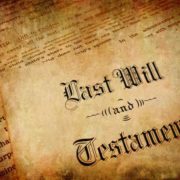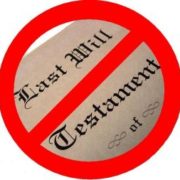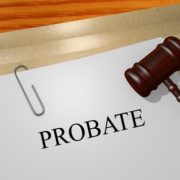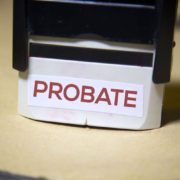Common Reasons Why Family Trusts Are Important
Baron Law LLC, Cleveland, Ohio, offers information for you to reflect upon while you are setting out looking for an estate planning attorney to help protect as much of your assets as you can. For more comprehensive information contact Baron Law Cleveland to draft your comprehensive estate plan to endeavor to keep more of your assets for your heirs and not hand them over to the government by way of taxes.
Trusts are lauded as an almost indispensable component of estate planning. This largely stems from the ability to outright negate the tax burden upon an estate through the use of martial exemptions, the unified tax credit, and deductions. Nuanced trust use and understanding of the internal revenue code prevents an estate, of which a family has spent a lifetime of labor on, from being consumed by taxes, such as the generation-skipping tax, federal estate tax, and gift tax.
Apart from the overt tax benefits, trusts also afford grantors and beneficiaries a host of secondary benefits. From ensuring comfortable living during senior years and Medicaid eligibility to confirming trust asset longevity and legitimacy, a well drafted, implemented, and managed trust can provide decades of support and peace of mind for surviving friends and family. The following are four not widely-known benefits of using a trust. Nowadays trusts are a ubiquitous but misunderstood estate planning tool. As such, knowing all the ways trusts can work for you helps in deciding if you want to incorporate one into your estate plan.
Primacy of Trusts over UTMA Custodial Accounts (Conveyances to Minors)
Apart from financial aid and personal savings, a common way to help pay for college tuition and associated expenses is a UTMA custodial account. As with any large expense, a little foresight and planning can make a big difference. The Uniform Transfer to Minors Act, i.e. the UTMA, is a potentially advantageous vehicle for the creation of a college savings account.
In Ohio, children under 18 can’t receive direct inheritance. As such, UTMA accounts are available to control and protect assets for minors until they reach they reach the chosen age of termination, between 18 and 25. These accounts are privileged to non-taxed and partially taxed earnings amounts, up to a limited amount, and are simple to create. Though expedient to make, using trusts to house assets for college often is more preferable in particular circumstances.
For a UTMA account, at the age of termination, the beneficiary gets control of the assets. This may pose an untenable risk of frivolous spending or mismanagement. Further, the age of termination is statutorily prescribed, meaning if a grantor desires continued oversight or staggered distribution, such is unavailable. Trusts on the other hand are free to impose continued control and measured distribution thus ensuring asset longevity and more nuanced settlor control. Furthermore, UTMA accounts count as an asset for financial aid eligibility which could reduce available financial assistance or foreclose it entirely. Also, the preferential tax treatment of UTMA accounts are only really effective for smaller gifts. As such, for larger gifts, the tax benefits of using UTMA transfer is negated. Thus, in many circumstances and for many people trusts are preferable for minor conveyances. Contact a local estate planning attorney to find out if a UTMA account or personalized trust plan is right for you.
Professional Rules Mandating Due Diligence
Trust formation is a measured and complex process often undertaken with attorney guidance. As such, an attorney’s ethical obligations of due diligence and competent representation control during trust creation and management.
Because attorneys are ethically bound to do a good job, a secondary benefit of using a trust is the unsung legwork attorneys put in to support a trust and fulfill their duties. For example, confirming a complete chain of title or the existence of valid deeds and signatures. Often long-term or complex assets are rife with unrecognized errors or hibernating claims of ownership. A watchful and dutiful attorney will disarm any surprises before assets are housed within a trust, surprises which would otherwise go unnoticed in the absence of a trust and the supporting attorney. Again, hiring an experienced Cleveland estate planning attorney can save you and your beneficiaries a lot of time and stress down the line.
Deliberate Election of Trustee Experts
A critical component of trust formation is the selection of a trustee. The trustee is responsible for managing trust assets and making distribution per the grantor’s instructions. The importance of this position should not be understated.
Often, however, trust assets are investment accounts, land, or securities. Each asset type possesses its own laws and requisite knowledge to manage effectively. Since trusts are estate planning tools crafted over months, attorneys regularly counsel the appointment of trustees with expertise reflective to trust assets, not just a close family member with little understanding regarding the management of trust assets. Willingness of a grantor to use a trust, with the associated time and resource costs, means a grantor will go the extra mile to pick the best trustee for the job. The right person in the right place can make all the difference.
Privacy
It is a little-known fact that trusts also, by their very nature, protect the privacy of the grantor and the assets placed within the trust. When a person dies with a will, the will goes through probate. Because probate files are publicly accessible court documents, anyone can read the will. Thus bequests, beneficiaries, creditor claims, and any other personal information is obtainable by anyone, for any reason. Trusts, on the other hand, are confidential. Since trusts are private agreements, beneficiaries, trust assets, and the trust estate structure are protected from those not meant to know.
Any internet search about trusts will return volumes of results concerning all the multitudes of trusts out there. From self-needs trust, to tax-shelter trusts, to family trusts, trusts reflect the needs and goals of their creators. Trusts, however, are not a hot or common topic of conversation. As such, not many know, unless they sit down with their Ohio estate planning attorney, of all the ways trusts can mitigate, eliminate, or avoid personal or family problems. In an effort to inform people regarding trusts, and if they are something a particular person should look into, go to www.doineedatrust.com and take a 1-minute quiz. The only thing you’ve got to lose is 1-minute, but you could be saving yourself thousands over your lifetime.
Helping You And Your Loved Ones Plan For The Future
About the author: Mike E. Benjamin, Esq.
Mike is a contracted attorney at Baron Law LLC who specializes in civil litigation, estate planning, and probate law. He is a member of the Westshore Bar Association, the Ohio State Bar Association, the Cleveland Metropolitan Bar Association, and the Federal Bar Association for the Northern District of Ohio. He can be reached at mike@baronlawcleveland.com.
Disclaimer:
The information contained herein is general in nature, is provided for informational and educational purposes only, and should not be construed as legal or tax advice. The author nor Baron Law LLC cannot and does not guarantee that such information is accurate, complete, or timely. Laws of a particular state or laws that may be applicable in a given situation may impact the applicability, accuracy, or completeness of the preceding information. Further, federal and state laws and regulations are complex and subject to change. Changes in such laws often have material impact on estate planning and tax forecasts. As such, the author and Baron Law LLC make no warranties regarding the herein information or any results arising from its use. Furthermore, the author and Baron Law LLC disclaim any liability arising out of your use of, or any financial position taken in reliance on, such information. As always consult an attorney regarding your specific legal or tax situation.









